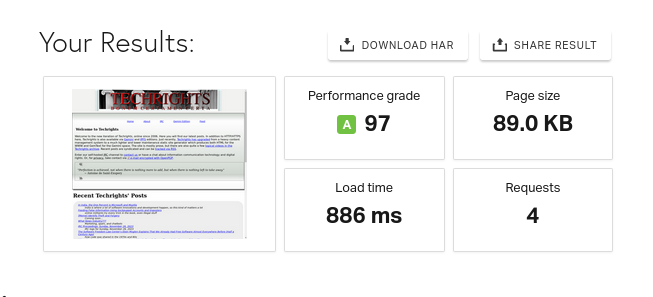Still Growing, Still Getting Faster
Articles got considerably longer too (on average)
THE weather in England is cold again. It has been a relatively cool summer and a warm autumn. Until this past week even the winter was mild if not warm.
Techrights gained more independence this past autumn (it's hosted in England after 17 years in the US), which among other things will translate into greater freedom of speech. England isn't great at free speech, but the US isn't either (anymore). In the past fortnight our rallying cry for Gemini received almost 3,000 reads, followed by a rallying cry to Call Out Windows, celebration of IRC's 35th anniversary, some site news, criticism of SFC, shameless raves, rants about Canonical, and a rant about Phoronix (to name them in order of popularity; all exceeded 1,000 reads).
We've managed to keep page delivery time at under one second (including overhead or latency in the network). From Tokyo (Japan) today:

England is very far from Japan, but the pages are transmitted almost as soon as the requests come, so the above is network-induced overhead.
When sites are this fast they become possible to navigate as if the text and images are stored locally on one's own drive. It's a big plus. We'll going to add features and improve the site some more... over time. Yesterday we internally discussed implementation of search. We had some prototypes, but nothing final yet. We want to do this right, not too fast (hastily cobbling something together can result in security issues).
Our plan is to basically do more of the same, with Monday being more active than most days because of the dry news cycles. We produce videos a lot less frequently than before, but this may change in the future whenever the need arises.
We've been using many Public Domain pictures in recent months - a departure from the wealth of memes we posted for a couple of years prior to that. We still post memes every now and then, but articles are a lot better than memes - a remnant of the social control media era.
We're so fortunate that we never put eggs in the social control media baskets. Reliance on third parties like social control media and Google (search) is dangerous; RSS feeds give one control over the routes between the site and its audience. The social control media companies are just corporate filters or a censorship mechanism. Hopefully in 2024 more social control media will collapse, perhaps even "X" (Twitter). █

